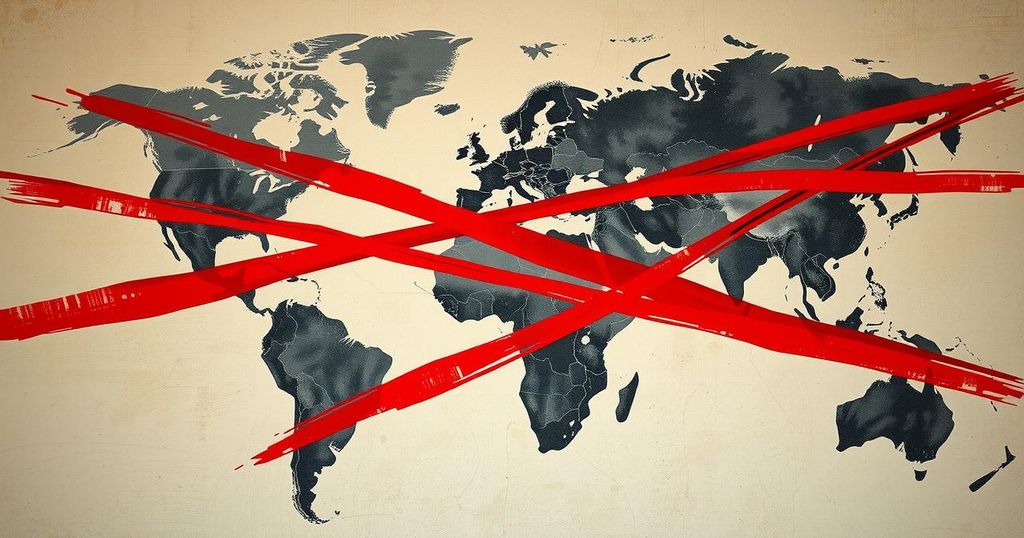This article discusses various perspectives on critical geopolitical issues, including Ukraine’s struggle against Russia, Egypt’s passive role in the Israeli-Palestinian conflict, Trump’s governmental efficiency efforts, immigration policy successes, and the relationship between technology and families. It underscores the need for strategic collaboration and the importance of addressing existing crises head-on.
The ongoing conflict in Ukraine represents a critical battleground in Russian President Vladimir Putin’s struggle against the West, as articulated by Mark Toth and Jonathan Sweet at The Hill. They argue that if Russia emerges victorious, Europe’s defensive posture in Eastern Europe will weaken significantly. With uncertainties surrounding U.S. support under Trump, it is essential for European leaders to recognize their reliance on Ukraine to safeguard the continent.
In the Middle East, Seth Mandel expresses outrage over Egypt’s lack of action concerning the Palestinian crisis amid the Israel-Hamas conflict. He argues that Egypt has an opportunity to facilitate temporary Palestinian resettlement, yet it opts to bemoan Israel’s actions instead. Mandel chastises the recent plan from Egypt and its Arab allies as ineffective, claiming it effectively surrenders to Hamas without contributing to a viable solution.
With President Trump newly in office, The Liberal Patriot’s Ruy Teixeira cautions against overreaching in governmental efficiency reforms, which might compromise critical entitlements such as Social Security and Medicare. He notes that this could diminish voter support for Trump’s initiatives, suggesting that the former President should refocus on key issues like illegal immigration which align more closely with public concerns rather than merely energizing his base.
Mark Krikorian at Commonplace discusses President Trump’s significant success in addressing the border crisis, which many believed was insurmountable. As apprehensions of illegal aliens fell dramatically, Krikorian credits Trump’s policy reversals for this shift. He emphasizes that the perception that authorities will enforce immigration laws dissuades potential illegal border crossings.
Cultural commentator Katherine Boyle, writing for The Free Press, critiques the tension between technology and the state, asserting that families represent an even more decentralized authority. She argues for the need for a collaborative relationship between the tech industry and family structures, emphasizing the enduring nature of familial bonds as crucial to progress and innovation.
In summary, the discourse surrounding global socio-political issues underscores the importance of collaborative efforts in addressing crises like those in Ukraine and Gaza. It highlights the critical role of governmental policies in shaping public perceptions and the necessity for new alliances between traditional familial structures and modern technology. Overall, effective solutions require both an understanding of immediate challenges and a vision for sustainable progress amidst complex dynamics.
Original Source: nypost.com




